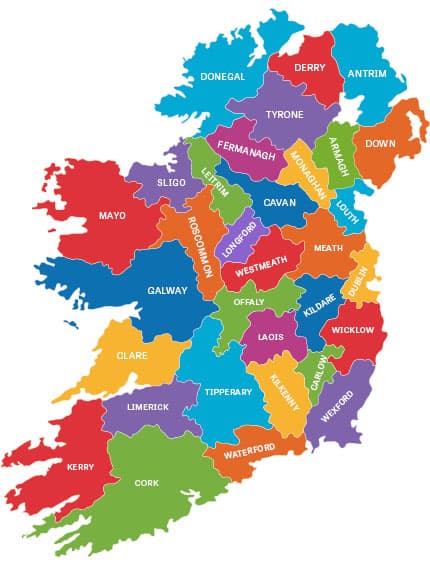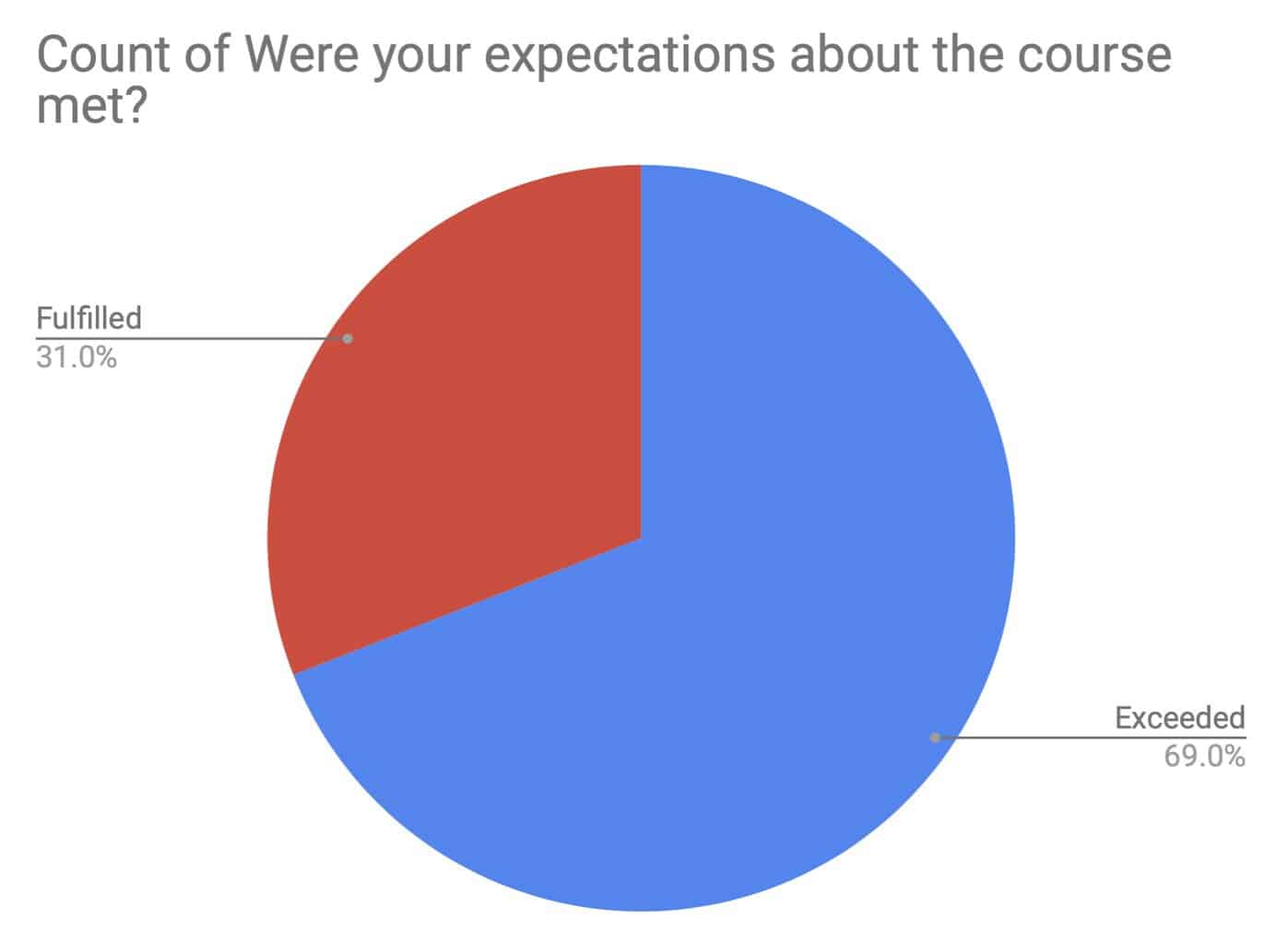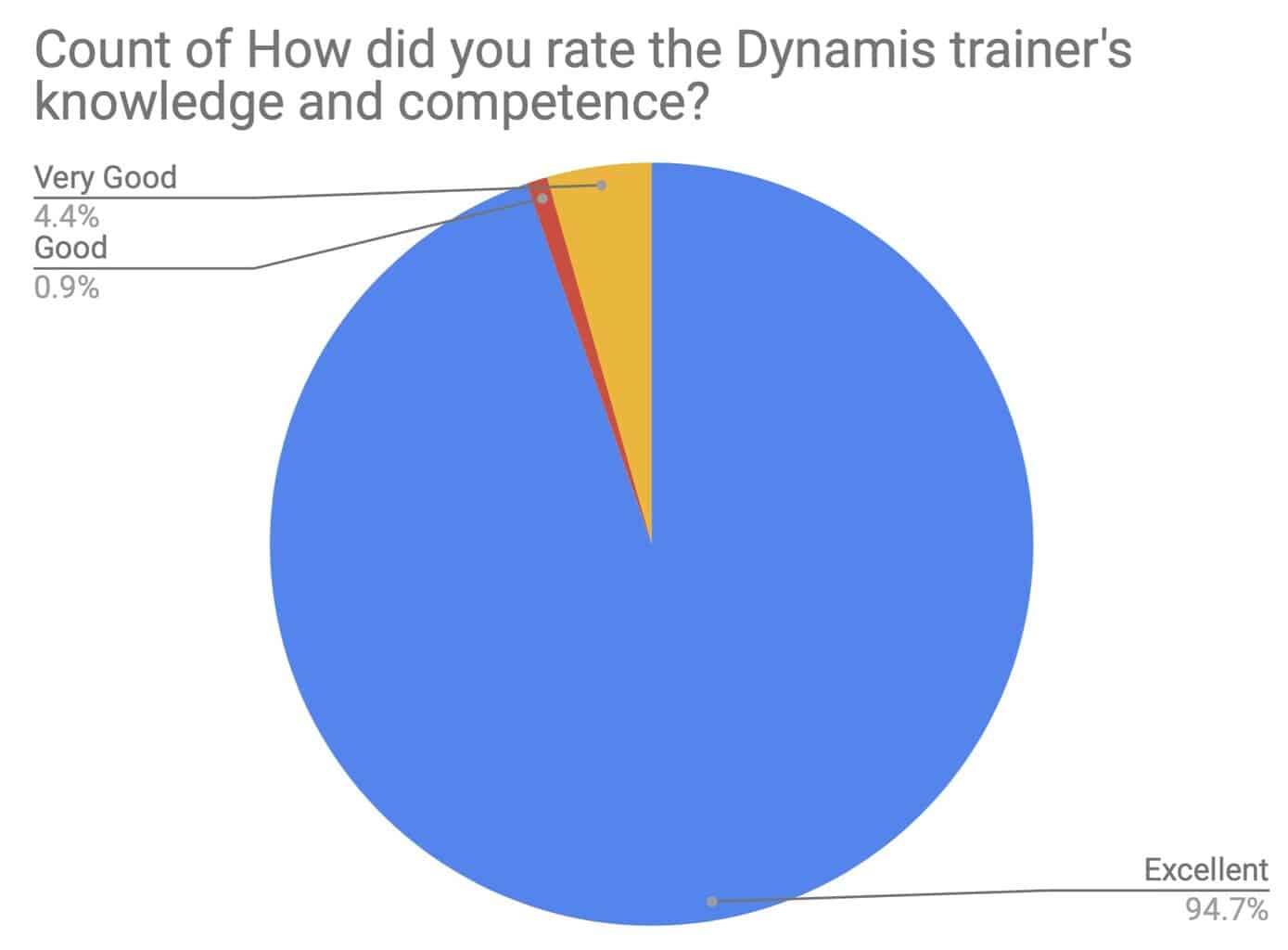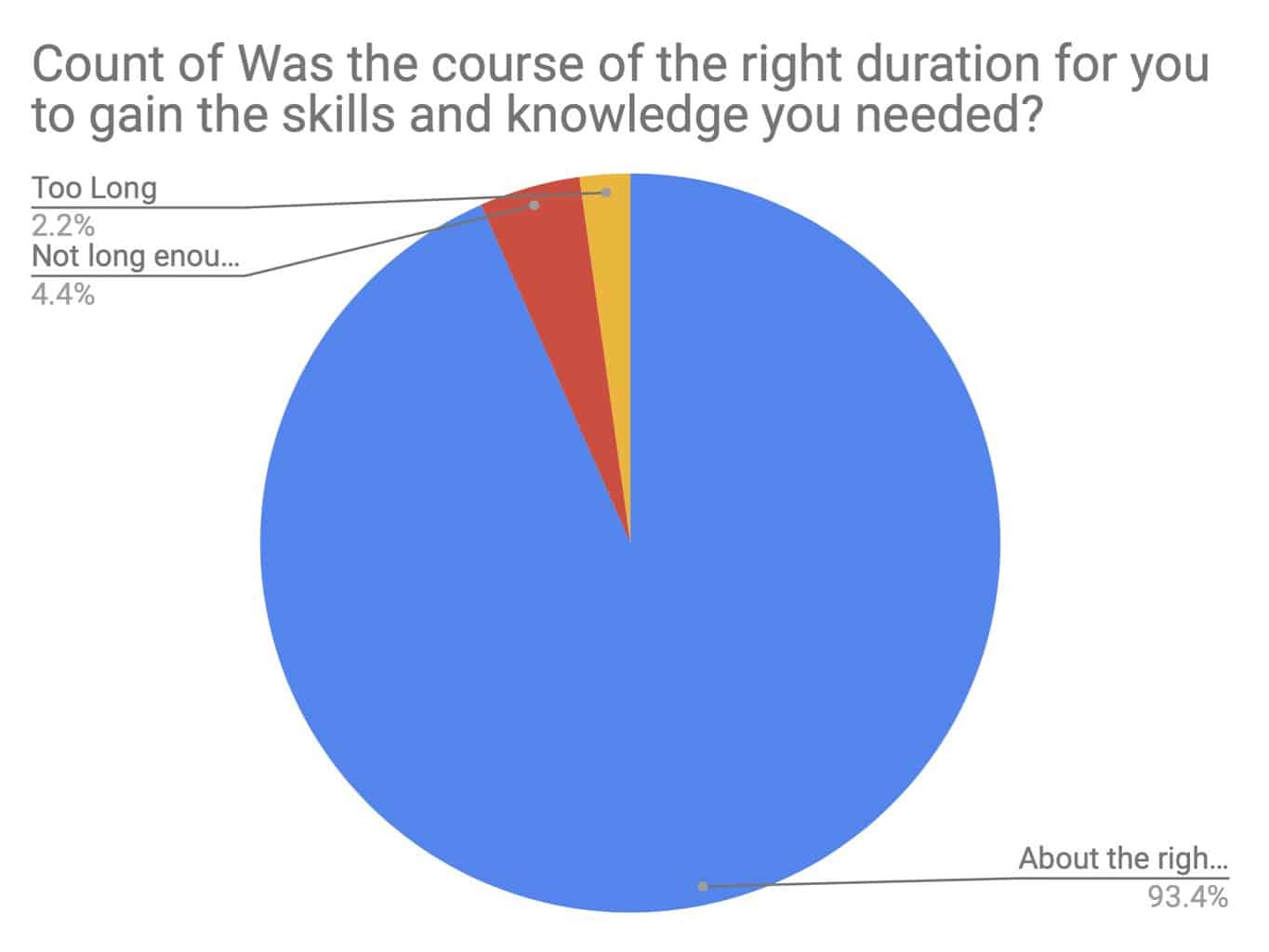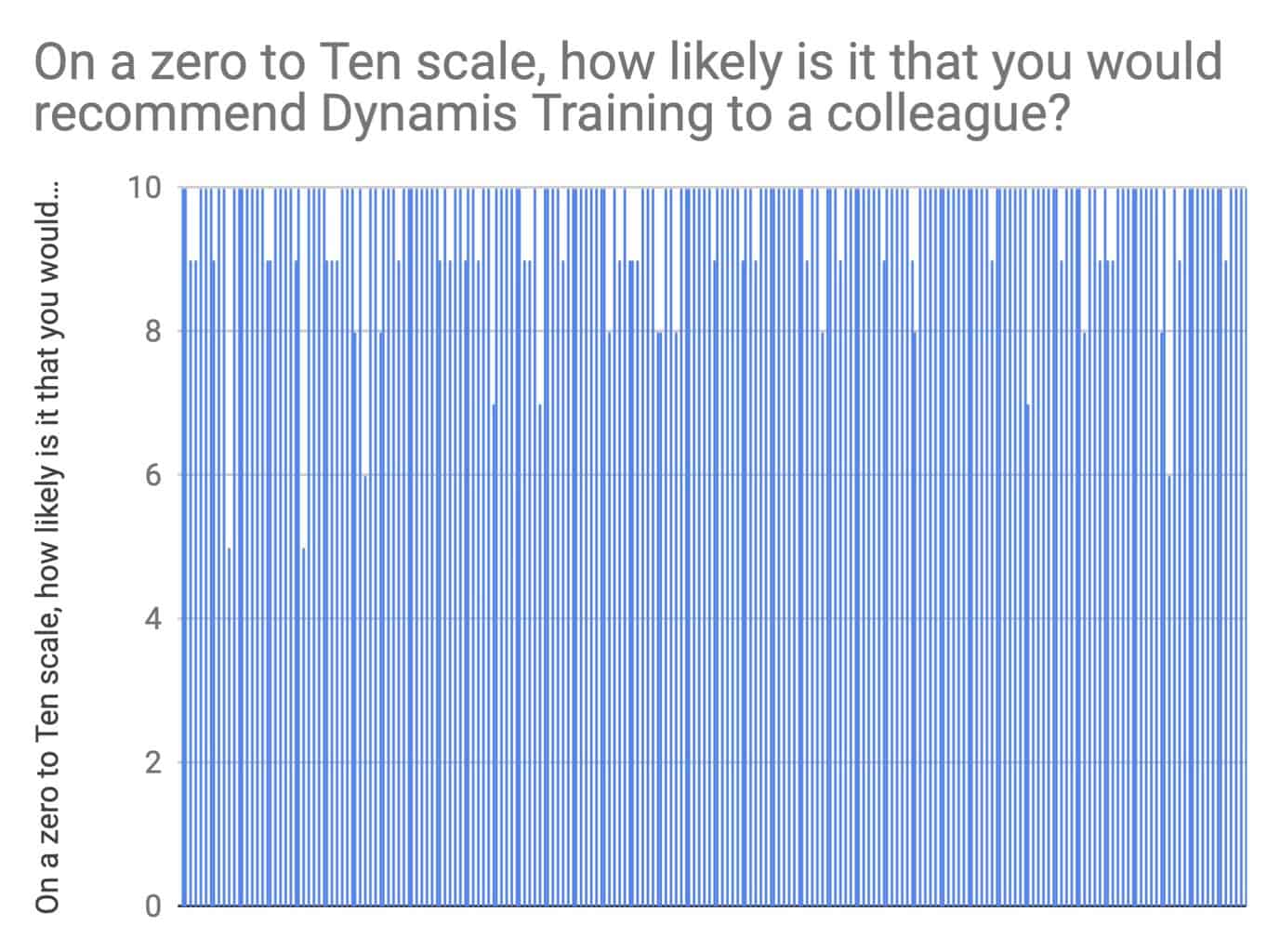Experiences of Behaviour and Crisis Management in Irish Schools
Dynamis trainers have been delivering positive handling training for a number of Irish schools over the past number of years. What did our team notice? And what recommendations might we make to other Irish schools following our experiences so far?
Our trainers noticed that many staff asked them for a clearer understanding of Irish legislation and guidance around positive handling in schools. Trainer Heidi noted: “In Ireland there’s not much by way of legislation and there’s been a lack of guidance from regulatory bodies in the education sector. So I think that has resulted in a culture of just doing ‘what we think is best’ when conflict occurs.” The trainers addressed misconceptions in existing knowledge and built staff’s understanding and confidence about what the law actually says in relation to physical interventions with children in Irish schools.
Heidi observed:
“Staff had struggled to access information on legislation and guidance for a variety of reasons. We are able to make the pathway through legislation clear for them. When we discussed risk assessments and foreseeable risks, we offered clarity on their questions such as ‘Who does that risk assessment?’ and ‘Is risk assessment a legal requirement?’”
What does Positive Handling mean in Irish Schools?
During recent visits for Positive Handling for Irish schools, Dynamis trainers mostly worked with Special Needs Assistants (SNAs) and some Teachers. Our trainers compared their experiences across a number of schools with our HQ and noted some of the most common requests for help. These included:
- Should we, and how should we, separate two pupils who are fighting?
- How can we manage a child in ‘meltdown’ in a crowded space?
- What to do when a child throws themselves on the floor?
Educators don’t tend to think of themselves as crisis managers or first responders. But the reality is that SNAs and teachers are almost invariably ‘on point’ when a child or young person in distress at school is causing harm to themselves or others. Dynamis trainers noted Irish colleagues’ hunger for robust principles and processes which would enable them to effectively resolve incidents like those described above.
Enter the ‘First Responder Philosophy’, a central part of our partner Vistelar’s non-escalation, de-escalation and crisis management training. Developed by experienced team leader, trainer and programme designer Gary Klugiewicz, the First Responder Philosophy outlines a 10-point process by which individuals can effectively manage a crisis, all the way to documenting and debriefing at its close.
Trainer Alex said,
“The SNAs responded really positively to the First Responder Philosophy. Every group loved that idea of putting into a ‘flow’ the methodology of being the first person to deal with something that could be risky. The SNAs liked that because you give them a structure, a flow, and from there they feel protected because you're giving them something they can use, both in the moment and in articulation and explanation afterwards.”
Communicating, documenting and debriefing after an incident are integral steps in the First Responder Philosophy. These steps provide key opportunities for reflection which is vital to developing best practice among staff and ensuring policies are live and fit for purpose.
Alex observed that in schools where this is working well, there is often time allocated for staff to reflect on what has happened in the past and to review the incident in full. Robust incident reporting systems and live risk assessments that can be adapted in quick time to facilitate this, as well as a policy structure that allows staff to go by the risk assessments and previous incidents.
Alex recommended:
“Have positive handling and crisis management policies that are live documents. Use the regular reflection and review baked into the First Responder Philosophy to ensure your school policies are always accurate and specific. This builds trust among staff - they know they are listened to by leadership, they can see that actions and changes are made following their experiences and reflections. And they can really trust and rely on the policies during internal reporting, external reporting and in investigation that comes from that.”
Can a person become a Positive Handling Trainer in one day?
Dynamis trainers enjoyed working with colleagues who were fully engaged with the training.
Alex observed,
“In Ireland, everyone wants to provide an input! Colleagues were very free with their stories and recollections; there was an ease in sharing what was on their minds. And when I asked a question I got lots of answers, which was brilliant.”
Whilst people’s personal approaches to the training was excellent, organisations varied in their understanding of what was required to create an excellent positive handling culture in their context. Some colleagues were solo attendees - they had been briefed by leadership to attend the course, learn the content and cascade it to the rest of the staff on return to their school. Dynamis recommends this approach is to be avoided.
First there is the legal problem of liability: becoming a physical interventions skills trainer involves developing a deeper level of understanding and an entire set of new instructional / learning design skills which are not imparted on a one-day practitioner course.
Second, positive handling and the possible restraint of any child or young person is a team activity.
Heidi said:
“If a team want to be a team in the truest sense of the word, then that team needs to have players and all the players have to be singing from the same song sheet. They all have to understand what the rules of engagement are. The staff need to support each other, they need to feel reassured by each other and have each other as a sounding board.”
She added,
“If you want to have a culture of treating people right running through the core of your school, from the staff to the pupils, then it follows that having all or the majority of staff on the training maximises the opportunity for this to become the social contract within the school, which benefits everybody.”
Solo learners who have attended our Positive Handling for Irish schools training sessions have gone on to champion the training in their schools, arranging for our team to visit with the wider team - at their school - to kick-start the knowledge, understanding and skills needed to develop excellent practice for the management of risky, harmful or even violent behaviours.
Heidi’s comment:
“There is real value for the group - to really affect the most positive change for those children who need the structure, the stability and professional responses - the stable and known responses from the adults in the school - that requires everybody to be on board. After training, there will be varying degrees of skill, some staff will take to the tactics like ducks to water, others will find it more difficult, but it will nevertheless be important for everyone to have an understanding of ‘what are our core common purposes here?’; the principles and the values of why we’re doing it this way.”
What we’d like our Irish schools to do is reduce the amount of interventions they are having with their most vulnerable, most in-need and most at-risk children, because with these new skills, staff can talk to them, because staff can recognise the fact that they may be being perceived as a threat as they arrive into a situation, because staff understand a bit more about the space between them and the the child for example.
What is scenario-based positive handling training for Irish Schools?
Dynamis trainers on our Positive Handling for Irish schools courses often hear that staff are not too keen on practicing their skills in near-live scenarios (as we do in our sessions).
Real incidents of at-risk behaviour by the children in our schools are high intensity and high stress experiences for all concerned. Replicating anything close to those feelings in training can feel really uncomfortable. So it’s understandable why some would rather ‘keep it to the theory’. But as Alex noted, “It’s really not a good way of looking at it, to say, ‘I don’t need to practice these skills, I’ll do it on the day.’ It is difficult to believe that staff are going to do something successfully for the first time when under significant stress!”
In crisis moments, SNAs and Teachers become ‘safety professionals’. They need to be able to operate through the ‘dump’ of stress hormones, keeping themselves and others safe by stopping the threat, stabilising the situation and getting to recovery. To be consciously competent in these skills requires practice. Like riding a bike or driving a car, doing is the pathway to learning.
Dynamis’ empathetic trainers are accustomed to supporting learners as they adjust to the physical skills components of Positive Handling for Irish schools.
Heidi said,
“The way I ease people into scenario training is by telling them the only bit of acting they need to do is as the child - and they’ve seen plenty of that, they’re all experts in children’s behaviours. The rest of the time the just need to be themselves.”
Alex said,
“The ice-breaker for me is always, ‘These are not new skills, this is us coaching and refining an existing skill.’” He explained, “The first skills we work on are always Proxemics and the Universal Greeting. We think about how you talk to someone when you approach, and from there learners understand it’s not just in school, it’s everywhere in life we approach someone and talk to them. So once we’ve put that context into it, we think, ‘What’s the goal here?’ The goal is to talk to the person and then close the conversation in a respectful manner. I ask learners, ‘Do you do that a lot every day?’ and most people say, ‘Yeah, I do that all the time.’ Once they get that we are refining existing skills, the rest of it tends to flow fairly quickly. After about 3 to 5 repetitions of a scenario, people tend to get into it because they become emotionally involved.”
Dynamis trainers are regularly visiting Irish schools to deliver Positive Handling for Irish schools - our approach to positive behaviour and positive handling, helping SNAs and Class Teachers, their Senior Leadership Team, Special Needs Coordinators, Inclusion Managers and Liaison staff to keep everyone safe in their schools.
Here are the recent feedback statistics from our school clients in Ireland. We have taught more than 1000 school staff in Ireland in the current period and the statistics below cover the feedback gathered from this cohort:
Comments from our Learners:
"Very informative and practical. Not an overload of theory which was great. Heidi was very down to earth in the way she delivered the course. She had a story for everything which made the theory more realistic for us."
- Resource Teacher, Scoil Phadraig Naofa
"Spoke to the directors on a few occasions, booked the online training for all staff and have booked 6 staff into the full day training. I have found everyone professional, knowledgeable and helpful "
- Principal, Scoil Mhuire Senior School
"Well delivered and great information. Really great course."
- ASD class teacher, Bray School Project
"I found the course very informative and l am confident with the technics & tactics should l have to use them in future scenarios. The theory gave a clear & extensive understanding of the legislation, around restraint, policies, safety & the rights of the child & the employee."
- SNA, St Peter Apostle School
"10/10 for theory and practice based training based on best practice and legislation"
- St Patricks National School, Deputy Principal
"All persons dealing with ASD Class should have this training"
- Teacher, Scoil Carmel
"Alex was phenomenal. Improvements? Nothing. It was excellent"
- Principal, St. Gerald's DLS College
Appropriate and Helpful
The Average Net Promoter Score (out of 10) for Dynamis Positive Handling Training in Irish Schools is 9.64
To learn more about our training in Positive Handling for Irish schools, please visit: https://www.positivehandling.co.uk/restraint-training-schools-ireland/
We also deliver training in the UAE and across the whole world - see www.dynamis.training
With thanks to our excellent training team, Alex Hunter and Heidi Wroe, who contributed to this article.
To lobby your national body for more robust guidance about how to manage high-risk behaviours in your classroom, please visit and contact https://ncse.ie

